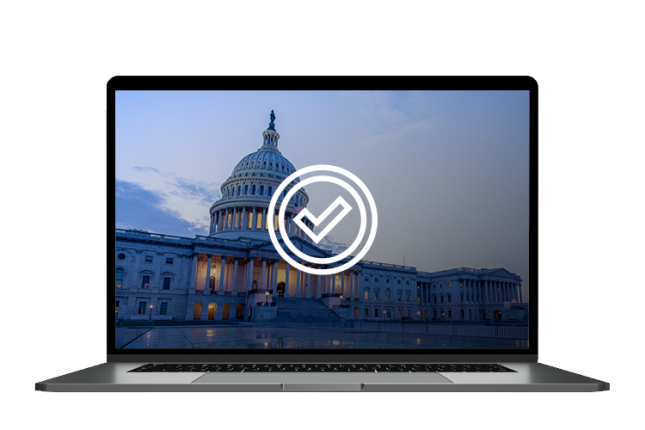Let our team help you navigate the ever-changing benefits compliance landscape each month. Check out this month’s latest alerts, additional updates, and resources – hot off the press:
Employee Benefits Compliance Alerts
COVID-19 Relief for HDHPs Is Ending
- In March 2020, the Internal Revenue Service (IRS) provided relief for COVID-19 testing and treatment.
- In March 2023, the Departments released updated guidance extending high deductible health plan (HDHP) relief until further notice.
- In June 2023, the IRS released Notice 2023-37 ending HDHP relief for COVID-19 testing and treatment on or before December 31, 2024.
PCORI Fee Due July 31, 2023
- The Patient-Centered Outcomes Research Institute (PCORI) fee applies to most group health plans, but not to excepted benefits.
- Payment amounts differ based on the employer’s plan year, and 2023 calendar year plans owe $3.00 per covered life.
- The fee is filed on the Internal Revenue Service (IRS) Form 720 and payment is made through the Electronic Federal Tax Payment System (EFTPS).
- There are several methods that employers can use to determine the applicable fee.
Oklahoma Law No Longer Affects HSA Eligibility
- In November 2021, an Oklahoma statute that required any discounts given by the drug manufacturer must be passed on to the insured, rather than allowing pharmacy benefit managers (PBMs) or insurers to retain the discounted difference became effective.
- As originally written, the law would require PBMs to render high deductible health plan (HDHP) participants ineligible for their health savings account (HSA) as third-party payments are applied to their out-of-pocket payment before their deductible is met.
- The law was amended to limit the requirement that any third-party payment be passed on to the insured, thereby negating the HSA eligibility consequences.
California Eliminates State Disability Wage Cap
- Starting in 2024, the wage cap for California State Disability Insurance (SDI) payroll deductions will be eliminated.
- Eliminating the wage cap will result in higher taxes and payroll deductions for individuals earning greater than $153,164 (the 2023 wage cap) per year.
- Employers should work with their EPIC account team to determine if a voluntary disability plan is a good fit for their organization.

Additional Updates & Resources
Reminder! Form 5500 Due July 31 for Calendar Year Plans
Employee health and welfare plan administrators with at least 100 participants must file an IRS Form 5500 each year by the last day of the seventh month after the end of the plan year, which means plan sponsors with calendar year plans must file annually by July 31.
Plan sponsors may file an extension, which delays the annual filing deadline for calendar year plans to October 15. Get more information about filing Form 5500.
Preventive Services Mandate Status Update
A new order from the Fifth Circuit Court of Appeals (the Court) leaves in place the Affordable Care Act (ACA) preventive services mandate while Braidwood Management, Inc. v. Becerra makes its way through the appeals process. On June 7, 2023, the Court heard oral arguments on the stay, put in place due to a request from the Biden administration. This most recent order allows the Department of Health and Human Services (HHS) to continue enforcement of the preventive services mandate during the appeals process for plans nationally.
HHS Provides Guidance on End of MHPAEA Opt-Out
At the end of 2022, the Consolidated Appropriations Act of 2023 (CAA 2023), stated that starting December 29, 2022, new opt-out elections for compliance with the Mental Health Parity and Addiction Equity Act (MHPAEA) by self-funded, nonfederal government health plans will no longer be allowed and that elections expiring before June 27, 2023 (180 days after the effective date), cannot be renewed. On June 7, 2023, the Department of Health and Human Services (HHS) published guidance outlining the process for certain collectively bargained plans to file for an extension of the MHPAEA opt-out and reminds plans that the HHS may enforce civil penalties against non-federal government plans that do not comply with MHPAEA.
IRS Memo Addresses Wellness Policy Taxation
A recent Chief Counsel Advice (CCA) memo from the Internal Revenue Service (IRS) confirms that the tax savings promised by certain fixed indemnity wellness programs are “too good to be true.” These programs generally hinge on the assumption that an employee’s taxable income can be reduced by employee participation in a type of wellness program and that those tax savings can be used to purchase other products or services. The CCA concludes in the memo that an employee’s income cannot be reduced pre-tax through a cafeteria plan without using that money to pay other medical costs allowed by the IRS to be paid on a tax-free basis. Any employers offering such programs and employees participating in such programs are at risk of significantly underpaying payroll and income taxes, which could later result in the IRS requiring such taxes plus interest and penalties to be paid.
San Francisco Updates HCAO Rates
The San Francisco Health Care Accountability Ordinance (HCAO) applies to most San Francisco City (the City) contractors and tenants and requires employers to offer a compliant health plan to their covered employees, to make payments to the City for use by the Department of Public Health, or, in some circumstances, make payments directly to their covered employees. The San Francisco Airport has additional separate requirements that it must meet to comply with the requirements. HCAO-compliant health plans must meet specific HCAO standards.
Effective July 1, 2023, the HCAO Fee Rate will increase to $6.35 per hour with a weekly maximum cap of $254. Effective July 1, 2023, the Healthy Airport Ordinance (HAO) City Option Contribution Rate will increase to $10.30 per hour with a weekly maximum cap of $412. Updated posters and forms are available on the HAO Webpage. For more information about the HAO, please visit the HAO webpage.
Visit our Compliance page and see how our EPIC team can help your business thrive!
